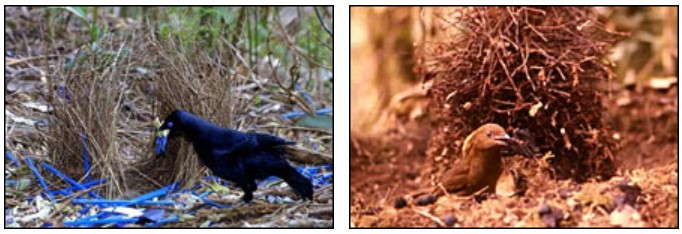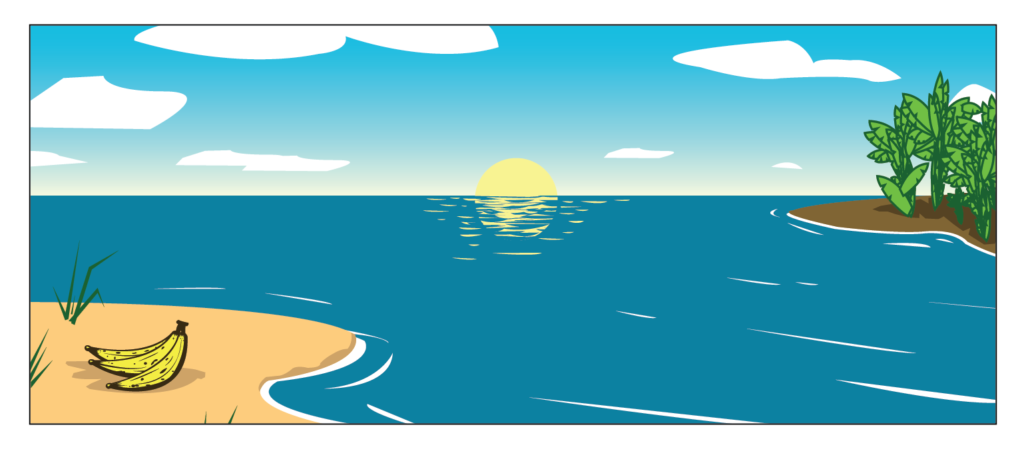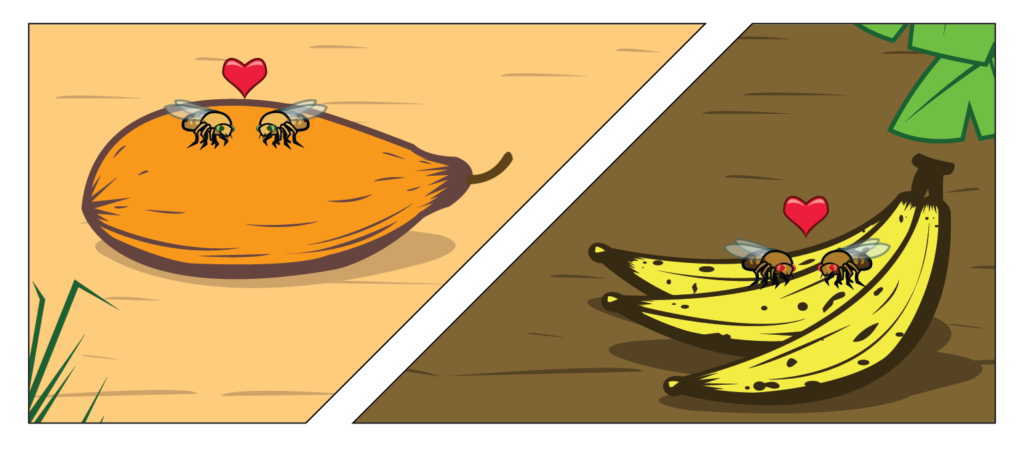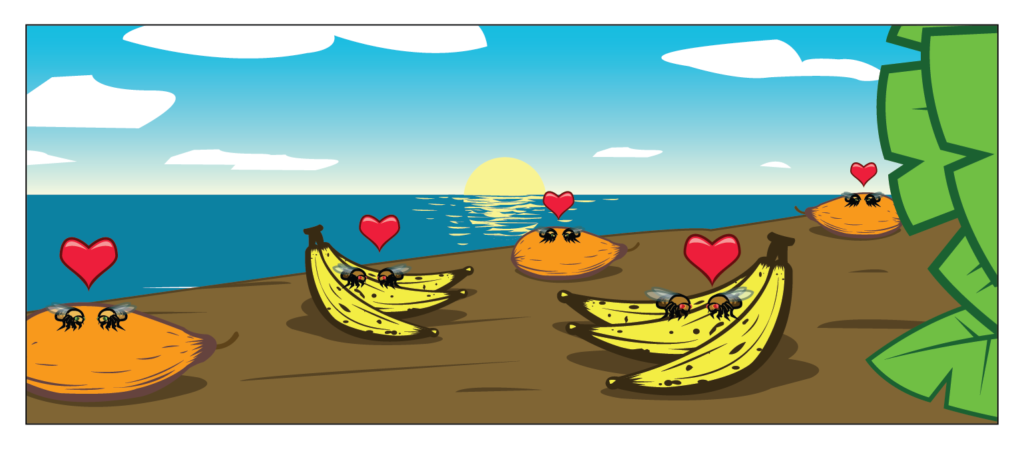The environment may impose an external barrier to reproduction, such as a river or mountain range, between two incipient species but that external barrier alone will not make them separate, full-fledged species. Allopatry may start the process off, but the evolution of internal (i.e., genetically-based) barriers to gene flow is necessary for speciation to be complete. If internal barriers to gene flow do not evolve, individuals from the two parts of the population will freely interbreed if they come back into contact. Whatever genetic differences may have evolved will disappear as their genes mix back together. Speciation requires that the two incipient species be unable to produce viable offspring together or that they avoid mating with members of the other group.
Here are some of the barriers to gene flow that may contribute to speciation. They result from natural selection, sexual selection, or even genetic drift:
- The evolution of different mating location, mating time, or mating rituals:
Genetically-based changes to these aspects of mating could complete the process of reproductive isolation and speciation. For example, bowerbirds (shown below) construct elaborate bowers and decorate them with different colors in order to woo females. If two incipient species evolved differences in this mating ritual, it might permanently isolate them and complete the process of speciation.
Different species of bowerbird construct elaborate bowers and decorate them with different colors in order to woo females. The Satin bowerbird (left) builds a channel between upright sticks, and decorates with bright blue objects, while the MacGregor’s Bowerbird (right) builds a tall tower of sticks and decorates with bits of charcoal. Evolutionary changes in mating rituals, such as bower construction, can contribute to speciation. Satin bowerbird photo courtesy of Graeme Guy. MacGregor’s bowerbird photo courtesy of Stephen and Melinda Pruett-Jones. - Lack of “fit” between sexual organs:
Hard to imagine for us, but a big issue for insects with variably-shaped genitalia!
These damselfly penises illustrate just how complex insect genitalia may be. Image adapted from Eberhard, W.G. 1985. Sexual Selection and Animal Genitalia. Harvard University Press. - Offspring inviability or sterility:
All that courting and mating is wasted if the offspring of matings between the two groups do not survive or cannot reproduce.
In our fruit-flies-in-rotten-bananas-in-a-hurricane example, allopatry kicked off the speciation process, but different selection pressures on the island caused the island population to diverge genetically from the mainland population.

What might have caused that to happen? Perhaps, different fruits were abundant on the island. The island population was selected to specialize on a particular type of fruit and evolved a different food preference from the mainland flies.

Could this small difference be a barrier to gene flow with the mainland flies? Yes, if the flies find mates by hanging out on preferred foods, then if they return to the mainland, they will not end up mating with mainland flies because of this different food preference. Gene flow would be greatly reduced; and once gene flow between the two species is stopped or reduced, larger genetic differences between the species can accumulate.

